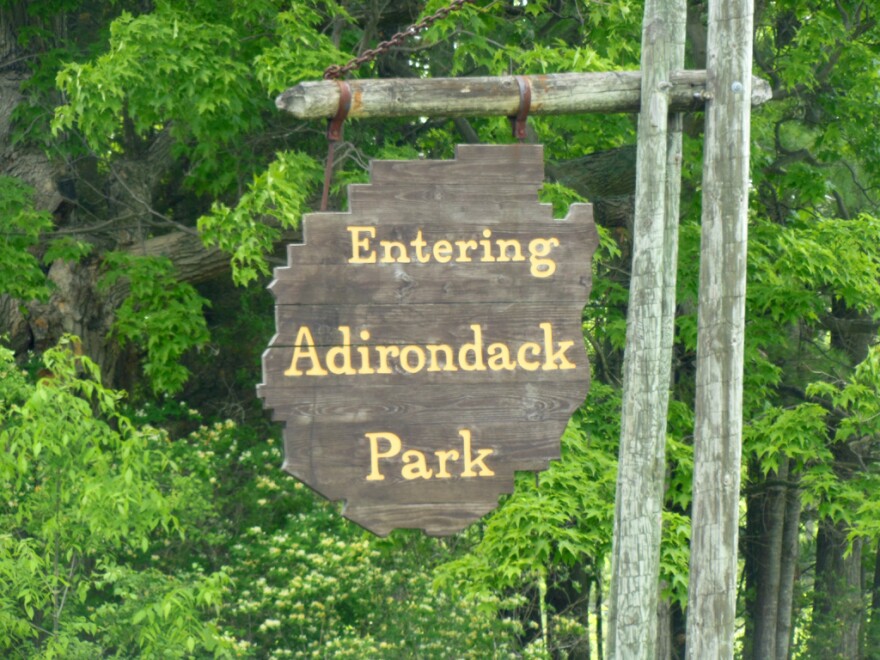The New York State DEC has proposed a snowmobile trail plan in the central Adirondacks. The issue was up for approval at Thursday’s Adirondack Park Agency meeting.
The proposed Community Connector Trail Plan is tied to the 2012 state acquisition of 69,000 acres of the Finch Pruyn forest lands and the economic opportunities it opens for the communities of Long Lake, Minerva, Newcomb, North Hudson, and Indian Lake. The DEC has proposed snowmobile connector trails – the Community Connector Trail Plan – that would link the five communities. Opponents are concerned about allowing motorized access, and the width of the trails and non-regulatory use of bridges over the Boreas, Hudson and Cedar Rivers.
During the Adirondack Park Agency‘s monthly meeting, Deputy Director for Planning Kathy Regan gave a final overview of the proposed trail network.
“Staff recommendation: We believe that the Community Connector Trail Plan conform to the guidelines and criteria of the State Land Master Plan and we are requesting that the Board adopt this resolution in the red line version that was presented.”
“I would move the resolution with your recommended changes.”
“Bill seconds it. Is there further discussion? Those in favor please say aye.”
“Aye”
“Those opposed? Hearing none that passes.”
Two days before the APA Commissioners met Protect the Adirondacks Executive Director Peter Bauer asked them to reject the Community Connector Trail Plan. “The APA’s action did not take the required hard look at the Wild and Scenic and Recreational Rivers Act specifically for protections for scenic rivers that preclude motorized uses motorized trails for snowmobiles. The state regulations and the Wild and Scenic and Recreational Rivers Act itself are pretty clear in precluding those activities.”
Adirondack Wild Friends of the Forest Preserve Partner Dave Gibson is disappointed that the APA approved the resolution. “It’s being proposed to cross three scenic rivers. The problem is you can’t do that legally. They’re trying to do it through a legal fiction which is that the public always had these rights when the land was owned by Finch Pruyn. Well the public didn’t have those rights. There’s a larger issue. Why in the Adirondacks do we need wider and faster routes? I think the idea is to enjoy and appreciate the Adirondack Park and the Forest Preserve.”
Long Lake Supervisor Clark Seaman says while snowmobiling is a crucial economic element, the intent is a four-season trail system. “Snowmobiling is our life blood in the winter. Therefore an improved trail system that connects the communities would be very appealing to them. I think it would have a significant impact on the few local businesses that we have here in Long Lake for example that do stay open through the winter if this trail system is set up. We’re looking at not just the snowmobiling community but equestrian use, mountain biking use, as well as hiking. The hope is that we’ll attract enough visitors throughout the year that it will have a positive impact.”
Hamilton County Board of Supervisors Chair Bill Farber says while opponents berate the snowmobiling aspect of the connector trails, it’s a four-season system that will enhance the region’s economy. “It’s critical to keep these communities alive. It’s critical to figure out how we backfill the gaps that they’ve seen in their economy because the Adirondack Park really is a great experiment. It’s public and private land. It’s showing how you can establish and operate a very unique park. It’s not a national park. It doesn’t have a park service. It’s got people that live here and work and go to school here and seek health care here. It’s critical that we keep the communities alive.”
The DEC plan would also allow motorized access to Deer Pond and Fifth Lake.




